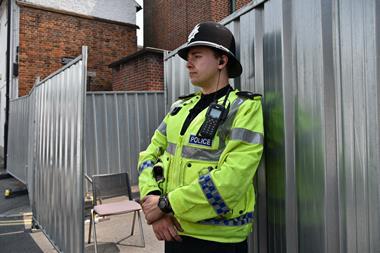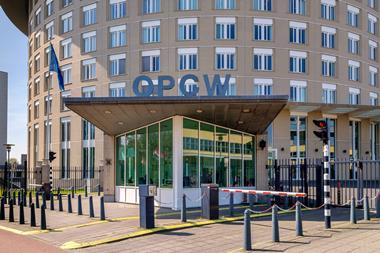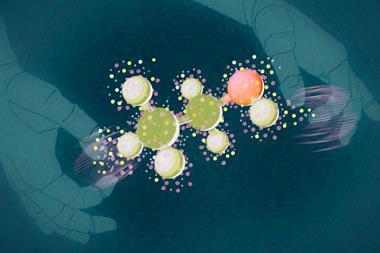Events in Salisbury and Douma show how important OPCW has become
For the past two months, chemistry has been centre-stage in a geopolitical drama that has threatened to bring about a new cold war.
Two events have led to rising tensions. First, on 4 March, Sergei and Yulia Skripal were found unconscious on a park bench in Salisbury, UK, having been poisoned by a nerve agent. And on 7 April, the Syrian city of Douma was the site of a suspected chemical weapons attack. As the events have played out in front of a global audience, putting some of the world’s most powerful states in direct opposition, it has become a real-time case study in science, society and politics.
In Salisbury, scientists at the Defence Science and Technology laboratory in Porton Down quickly identified that the nerve agent used was a ‘Novichok’, a class of weapon developed by a Russian chemical weapons programme in the 1980s. With further evidence provided by UK intelligence services, Theresa May, the prime minister, told parliament on 14 March that it was ‘highly likely that Russia was responsible’. Russia strongly denied any responsibility, accusing the UK government of fabricating evidence and questioned the findings of Porton Down’s scientists.
In Douma, evidence of a chlorine and sarin gas attack emerged in footage shot by victims and reports from humanitarian organisations on the ground. The governments of the US, UK and France cooperated in retaliatory strikes on targets in Syria on 14 April, stating they had proof that the attack had been carried out by Syrian government forces. The Assad regime denied responsibility and its ally, Russia, has levelled the blame at rebel forces carrying out so-called ‘false flag’ attacks intended to provoke western governments to action in the Syrian conflict.
Thankfully, when bilateral diplomacy has failed, the Organisation for the Prohibition of Chemical Weapons (OPCW) can be called on to conduct an independent investigation. OPCW’s parallel investigation into the Skripal’s poisoning supported all the findings of the UK’s scientists. And although its investigation in Douma was initially hindered, its inspectors were eventually granted access to the site. Their findings will be vital to help establish what took place there.
As Mark Peplow wrote recently, this is a very different role for the OPCW than the work for which it was awarded the Nobel peace prize in 2016. The OPCW is actively policing chemical weapons – and as a non-partisan, international body, its ability to act impartially provides clarity and certainty amid the claims and counterclaims of international politics.
As Mark Peplow writes in this issue (p17), this is a very different role for the OPCW than the work for which it was awarded the Nobel peace prize in 2016. The OPCW is actively policing chemical weapons – and as a non-partisan, international body, its ability to act impartially provides clarity and certainty amid the claims and counterclaims of international politics.
Information is a powerful tool in today’s 24-hour news cycle. Fact-checking has become harder and public trust has been eroded by a morass of misinformation, something the political consulting firm Cambridge Analytica has been accused of exploiting. The firm has been in the news for harvesting Facebook user data to build psychological profiles, which it then used to influence voters. A little further back in Cambridge Analytica’s history, its parent company SCL Group attended a military trade show with a live demonstration of a communications campaign designed to spin a smallpox outbreak as a chemical leak. It’s not hard to see how the ends – keeping citizens safe at home and avoiding widespread panic – might justify the means. But should science collude in such a deception?
In a letter written in 1944, George Orwell said that ‘there is no such thing as a history of our own times which could be universally accepted, and the exact sciences are endangered as soon as military necessity ceases to keep people up to the mark’. History may indeed depend on who holds the pen, but thankfully organisations such as OPCW ensure that science still speaks for itself.

















No comments yet